Humans
Sign up for our newsletter
We summarize the week's scientific breakthroughs every Thursday.
-
 Humans
HumansYear in review: Early human kin could shake up family tree
From a South African cave to an East African rift valley, fossil and archaeological finds reported in 2015 added new twists to the evolution of the human genus.
By Bruce Bower -
 Health & Medicine
Health & MedicineYear in review: Not all bodies act their age
People grow old at different rates, but the underlying drivers of aging may be the same: molecular havoc wreaked inside of cells, scientists suggested in 2015.
By Meghan Rosen -
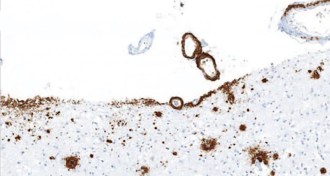 Neuroscience
NeuroscienceYear in review: Alzheimer’s protein behaves like a prion
Under rare conditions, an Alzheimer’s-related protein may have jumped between people, scientists reported this year.
-
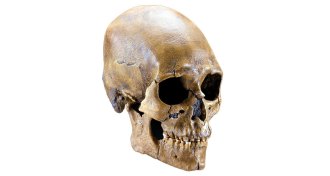 Humans
HumansYear in review: Native Americans are Kennewick kin
Ancient DNA identified 8,500-year-old Kennewick Man as a Native American relative.
By Bruce Bower -
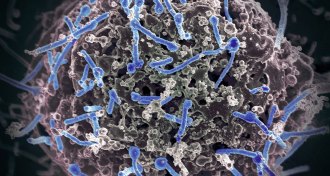 Health & Medicine
Health & MedicineYear in review: Ebola vaccines on the way
After more than a year of furiously developing and testing potential Ebola vaccines, two candidates have risen to the top and may soon be available for use.
By Meghan Rosen -
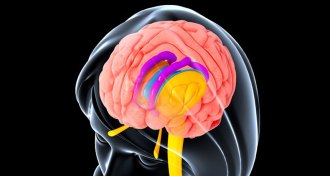 Neuroscience
NeuroscienceBrain shapes come from mom and dad
By linking genes to brain shapes, scientists have a new way to study how the brain works.
-
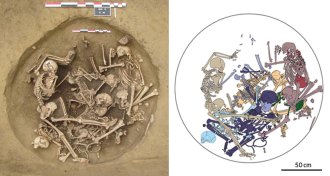 Archaeology
Archaeology6,000-year-old skeletons in French pit came from victims of violence
Human bones in a French pit recall lethal conflicts and limb lopping 6,000 years ago.
By Bruce Bower -
 Genetics
GeneticsLiberia’s Ebola outbreak largely traced to one source
Ebola’s spread and evolution in Liberia echoes patterns seen in Sierra Leone.
-
 Health & Medicine
Health & MedicineIron helps growing bodies, but could too much do harm?
Iron fortification has been a public health victory in the fight against childhood anemia. But too much iron may be a cause for concern, scientists propose.
-
 Health & Medicine
Health & MedicineHigh-potency pot smokers show brain-fiber damage
People who smoke potent pot had signs of damage in a brain communication link.
-
 Health & Medicine
Health & MedicinePay attention to that under-the-weather feeling
People can forecast their likelihood of catching colds by rating their own health, study shows.
By Bruce Bower -
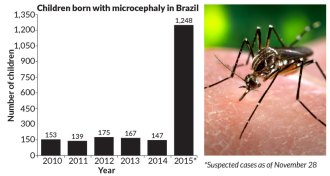 Health & Medicine
Health & MedicineVirus spread by mosquitoes linked to rare birth defect
In addition to fever, rash and vomiting, Zika virus may cause rare birth defect.